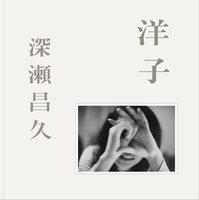$45.28
$33.98
- Hardcover
- 280×225mm
- 128 page
- ISBN 978-4-86541-030-3
- March 2015
In 2009, freelance photographer Eriko Koga visited Mt. Kōya, home of a 1,200 year old Buddhist monastery in the mountains south of Osaka, for the first time. She explained the effect that visiting the complex had on her:
Okuno-in Temple exerted an especially strong pull on me. Its unique atmosphere overwhelmed all five of my senses. The air, the slow pace of mountain life and the kindness of the people brought about a serenity and security that permeated my entire being. (from the postscript)
Koga returned many times after her initial encounter to document with camera and film the feelings Mt. Koya evoked in her. With a desire to go even deeper than her regular short trips from Tokyo allowed, the photographer rented a small apartment in 2010 in the mountain village of Kōya where she stayed for one week every month for three years.
Mt. Kōya is a destination for Buddhist pilgrims and tourists alike, and is home to the Shingon sect of Esoteric Japanese Buddhism. The goal of Shingon is to simultaneously employ the "Three Mysteries" of body, speech, and mind to reveal one's nature. The mystery of the body is revealed through devotional gestures and the use of ritual instruments; of speech through sacred formulas; of mind through meditation. Koga's images are the result of a meditative eye wed to a camera, itself a ritualistic instrument controlled by actions and gestures bordering on the devotional. Through Issan, Koga reveals not just the nature of the monastery but perhaps something of her own nature as well. Her devotion to photographing the mountain is not unlike that of the Buddhists whose rituals played out before her lens.
Ultimately, my sense of myself as a person takes precedence over my photography. If only in a small way, I always try to be a better person. I believe it is this desire that inspires me to give voice to certain places or persons; it is a desire to address a deficiency I see in myself. When I am searching for something, it makes me devote myself more and more to the subject. Perhaps this is the kind of strength that underlies religious faith. (from the postscript)
Issan is available in three different cover colors (Usuzumi, Yuki, or Sakura) and in a special edition presented in a hand crafted wooden box.




































